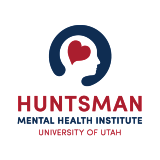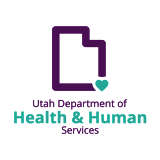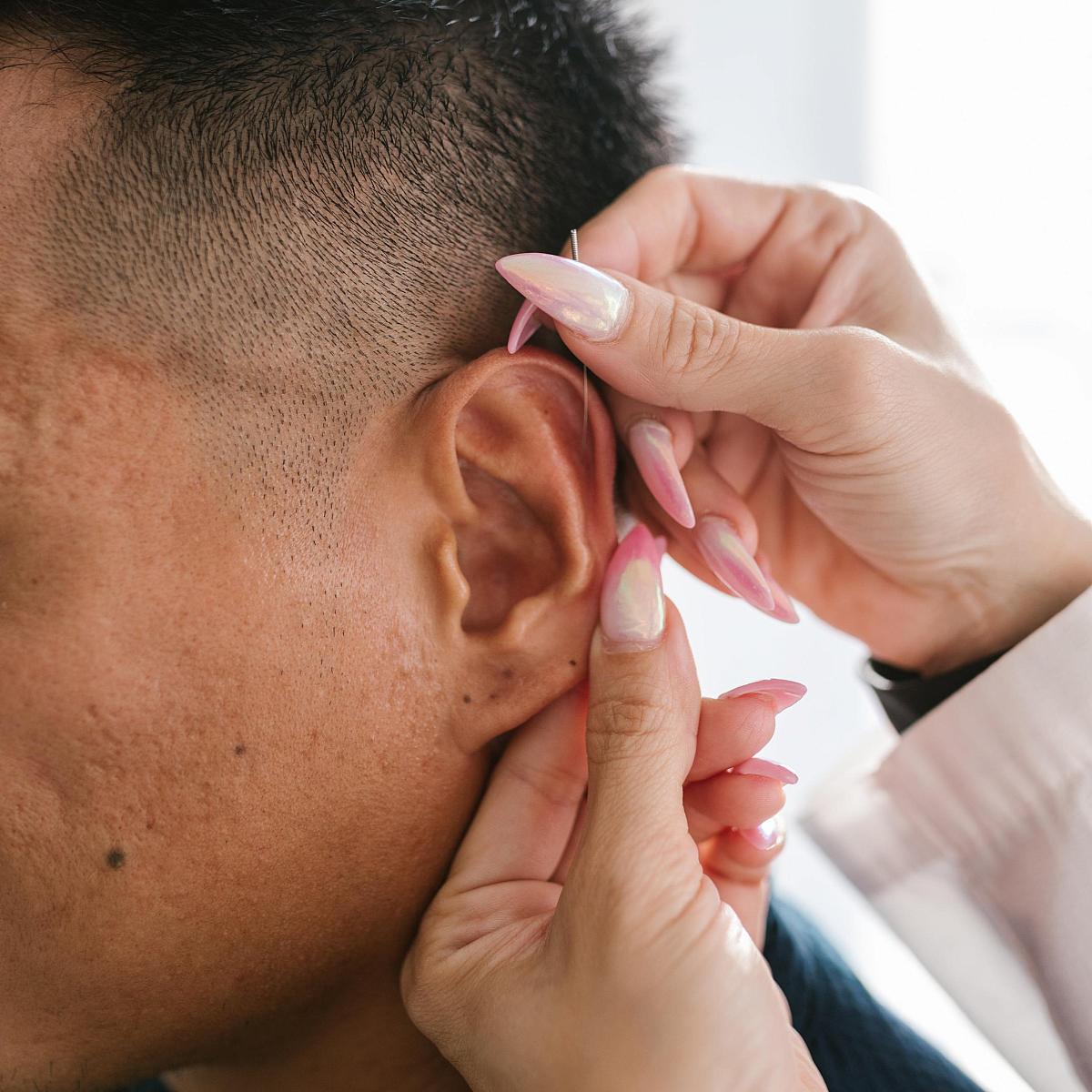
Conference Agenda
Nationally recognized experts come together to provide the latest research, clinical tools, legal/ethical considerations, and future trajectories, empowering you to stay on top of your practice amidst changing landscapes.
Explore the most current research in addiction arenas and other timely issues, such as:
- Drug repurposing
- Acute pain
- Harm reduction
- DEA perspectives
- Fentanyl
- Stigma
- Co-occurring disorders
- Buprenorphine, suboxone, meth & ketamine
- Medical complications
2024 Conference Agenda
Saturday, June 8, 2024 | Optional Pre-Conference, Day 1
8:30 am – 5:00 pm
AcuDetox Training & Certification, Part 1 | 4.5 hours
Online training must be completed prior to attending this training and certification workshop. Learn more.
Amy de la Garza, MD
Elizabeth F. Howell, MD
Following this specialized training, participants will be able to:
- Demonstrate competencies and apply for certification in 5-Needle Protocol, or AcuDetox; and,
- Apply AcuDetox as indicated as an adjunct to clients in substance use prevention, treatment, and recovery settings.
Sunday, June 9, 2024 | Optional Pre-Conference, Day 2
8:30 am – 5:00 pm
AcuDetox Training & Certification, Part 2 | 4.5 hours
Online training must be completed prior to attending this training and certification workshop. Learn more.
Amy de la Garza, MD
Elizabeth F. Howell, MD
Following this specialized training, participants will be able to:
- Demonstrate competencies and apply for certification in 5-Needle Protocol, or AcuDetox; and,
- Apply AcuDetox as indicated as an adjunct to clients in substance use prevention, treatment, and recovery settings.
Monday, June 10, 2024 | Main Conference, Day 1
8:00 – 8:30 am
Check-in and Registration
8:30 – 8:35 am
Welcome and Administration
Elizabeth F. Howell, MD
CME Course Director
8:35 – 9:35 am
Keynote Address
"Neuroscience-Informed Drug Repurposing for Addiction: From Bench to Bedside and Back"
Mehdi Farokhnia, MD, MPH
After hearing from this expert on the latest developments, you will be able to:
- Portray the current landscape of pharmacotherapies to treat patients with alcohol and other substance use disorders; and,
- Describe the significance of translational research and drug repurposing to facilitate medication development for addictions and give examples of ongoing neuroscience-informed drug repurposing efforts to develop novel pharmacotherapies for alcohol use disorder.
9:35 – 9:45 am
Break
9:45 – 11:00 am
Concurrent Sessions | 1.25 hours each
"Update In Data, Trends, and Medications for Addiction Medicine"
Robert J. Mendenhall, DO
Upon completion of this presentation, participants will be able to:
- Trace some of the common addiction treatment practices and their evolution; and,
- Take this discussion further into the current and projected future research which is and will continue to change the fields of addiction.
"Substance Use Disorder Across the Continuum of Care: Pregnancy, Postpartum, Parenthood and Beyond"
Frank J. Powers, MD
After hearing this presentation, participants will be able to:
- Discuss some of the common issues presented by substance using clients in the ob/gyn settings and how those issues must be addressed in perinatal patients; and,
- Design and adhere to a treatment plan addressing all these complicating and potentially co-occurring issues.
"Benzodiazepines: To Deprescribe or Not to Deprescribe - That is the Question"
Spencer Hansen, MD
After attending this presentation, participants will be able to:
- Outline the ‘brain issues’ associated with benzodiazepine use and how they present; and,
- Implement the protocol currently believed to be most effective in treating benzo withdrawals in outpatient settings.
"Group Therapy in SUD Treatment: A Look into Evidence-Based Practices That Promote Individual and Social Recovery in a Group Therapy Setting"
Lucy Izard, LCSW
After attending this presentation, you will be able to:
- Show how benzodiazepines work in the body, review current guidelines for medical/psychiatric use, and review current literature around deprescribing ; and,
- Review the criteria to consider before deprescribing benzos and some protocols on how to deprescribe.
11:00 – 11:15 am
Break
11:15 am – 12:15 pm
Concurrent Sessions | 1.0 hour each
"The Relationship Between Substance Use and Suicide: A Toxic Cocktail"
1.0 Suicide Prevention Credit
Rachael Jasperson, LCSW, PhD, MBA
After attending this session, you will leave able to:
- Describe the relationship between substance use and suicide risk and identify how suicide risk factors are influenced by substance use; and
- Apply evidence-based interventions to reduce suicide risk.
"Working Without Frustration When Dealing with High-Utilizers"
0.25 Ethics Credit
Erica N. Baiden, MD
After attending this program, participants will be able to:
- Discuss some of the ‘revolving door’ scenarios often followed by individuals with substance use disorders and the role of intensive outpatient management in the prevention and/or interruption of this phenomena; and,
- Design intervention plans to deter this ‘revolving door’ scenario and adjust the interventions as may be indicated by the course of treatment.
"Mind the Gut: Developing New Pharmacotherapies for Addiction Via Gut-Brain Targets"
Mehdi Farokhnia, MD, MPH
At the conclusion of this session, you will be able to:
- Show the need to increase the armamentarium of pharmacotherapies for alcohol use disorder and describe the role of different elements of the gut-brain axis in alcohol seeking and consummatory behaviors; and,
- Summarize studies outlining the role of ghrelin in alcohol craving, use, and other related outcomes and provide examples of ongoing efforts to target the ghrelin system as a potential pharmacotherapeutic target for alcohol use disorder.
"Addiction and the Adolescent Brain: Findings from the Longitudinal ABCD Study"
Erin McGlade, PhD
Upon completion of this session, participants will be able to:
- Report on the latest ABCD Study findings related to addictive behaviors and the effects of addictions on the brain; and,
- Translate this research into clinical settings when working with children, adolescents, and families.
12:15 – 1:15 pm
Luncheon, Roundtable Discussions, and Acudetox Stations
1:15 – 2:30 pm
Concurrent Sessions | 1.25 hours each
"Alcohol - The Forgotten Killer Drug"
B. Todd Thatcher, DO
After attending this presentation, participants will be able to:
- Present the Risky Drinking App from NIAAA and assess clients with this app and other tools to identify their place on the spectrum of alcohol use; and,
- Design and follow a treatment plan for clients in all levels on the spectrum from screening and anticipatory guidance in primary care settings to referrals and specialized treatment.
"Acute Pain and Patients on Medication for Opioid Use Disorder – Buprenorphine in the Perioperative Period"
Kimberlee Bayless, DNP, FNP-BC
Evelyn Loose, MD
Eric Piacenza, MD
After spending time with these speakers, participants will be able to:
- Report on current national buprenorphine guidelines; and,
- Manage acute pain in surgical patients on buprenorphine.
"Abstinence or Harm Reduction: Can They Exist in the Same Universe? "
1.0 Ethics Credit
Thom Dunford, BSW, MBA (Panel Moderator)
Darin Carver, LCSW
Mindy Vincent, MSW, LCSW, MPA
As a result of hearing the various views from these panelists, attendees will be able to:
- Debate on both sides – harm reduction / moderation versus total abstinence for substance use disorder recovery; and,
- Identify the best options for various clients and help design a treatment and recovery plan most likely to bring long-term success.
2:30 - 2:45 pm
Break
2:45 – 3:45 pm
Concurrent Sessions | 1.0 hour each
"Beyond Detox: Exploring Phenobarbital’s Role in Alcohol Recovery"
Elizabeth F. Howell, MD, MS, DLFAPA, DFASAM
After gleaning information from this expert, participants will be able to:
- Outline the most current research on phenobarbital’s use in the treatment of Alcohol Use Disorders; and,
- Design a treatment plan using this intervention for various individuals with AUD.
"Acute pain: It's not what it used to be"
Supported by the Opioid Response Network
Craig J. Uthe, MD, FAAFP, ASAM
As a result of attending this session, you will leave able to:
- Show the basic differences between acute and chronic pain management and identify key elements in determining appropriate acute pain and post-op pain management; and,
- Explore challenges and opportunities in treating acute pain in chronic pain patients.
"Tribal Perspectives on Substance Use Treatment"
0.25 Ethics Credit
RD Boardman, PhD
After hearing from this individual, participations will be able to:
- Present some native beliefs and traditions which must be factored into substance use disorder treatment plans when working with various native populations; and,
- Incorporate these factors into treatment plans in ways which respect native culture, beliefs, and resources to assist this population with substance use issues on various levels.
3:45 - 4:00 pm
Break
4:00 – 5:00 pm
Concurrent Sessions | 1.0 hour each
"From Hesitation to Hope: The Art of Engaging Clients by Using 12-Step Facilitation Techniques"
Jeff Clark, MD
As a result of participating in this session, you will leave able to:
- Describe the evidence behind the use of mutual aid groups in recovery; and,
- Demonstrate practical skills to improve client engagement in mutual aid groups.
"Beyond Buzzwords: Decoding The Latest Legislative Moves in Substance Use"
Luz Escamilla, MA
After hearing from this senator, participants will be able to:
- Report on the recent legislation impacting substance use issues in Utah and compare those to national trends; and,
- Ensure their own practices are in compliance with current legislation and identify other legislative gaps/needs to be considered in the future.
"Integrating Ketamine-Assisted Psychotherapy and Mindfulness in Addiction Recovery: Clinical Perspectives from the KetaMORE Trial"
Kevin Byrne, MD
After hearing from this expert clinician and researcher, participants will be able to:
- Trace the historical use of ketamine including its compounding, development, and use; and,
- Compare and contrast the effective and more ineffective and/or questionable practices with ketamine and its derivatives.
"Management of Mental Illness with Co-Occurring Substance Use Disorder"
Supported by the Opioid Response Network
Missy Henke, MD
On a more specific level, attendees will leave this session able to:
- Show how symptoms of a substance use disorder can mimic a primary mental illness; and,
- Describe different approaches to managing mental illness in a population with substance use disorders.
Tuesday, June 11, 2024 | Main Conference, Day 2
8:00 – 8:30 am
Check-in and Continental Breakfast
8:30 – 8:35 am
Welcome Back
Representative from the Utah Division of Professional Licensing OR Utah Office of Substance Use and Mental Health
Conference Partner
8:35 – 9:35 am
Keynote Address
"The ASAM Criteria and The Future of Addiction Care in the U.S."
R. Corey Waller, MD, MS, DFASAM
After attending this key session, attendees will be able to:
- Present the newest ASAM criteria along with the discussions and rationale for making these changes; and,
- Outline the changes that will need to be made in various practice settings to be in compliance with these new criteria.
9:35 – 9:45 am
Break
9:45 – 11:00 am
Concurrent Sessions | 1.25 hours each
"A Deeper Dive into the New ASAM World"
R. Corey Waller, MD, MS, DFASAM
This expert will continue to provide information which will allow participants to:
- Design a plan for changing their current practice to be in compliance with the new ASAM criteria; and,
- Educate others about these changes, including staff, so all individuals involved in the practice may be more aware of these changes and their roles in ensuring compliance.
"Suboxone in the Age of Fentanyl – Considerations in Acute Setting"
B. Todd Thatcher, DO, CMRO (Panel Moderator)
Jeffery Clark, MD
Robert J. Mendenhall, DO
Mason Turner, MD
Upon completion of this panel discussion, participants will be able to:
- Present considerations of suboxone and related agents in acute settings; and,
- Provide practical interventions for high dose buprenorphine, fentanyl inductions, meth delivery and transitions along with other pharma transitions, severe precipitated withdrawal management and other areas related to suboxone in today’s world.
"Fentanyl Update and Current Trends"
Gil Van Attenhoven
After gaining information from this session, participants will be able to:
- Discuss fentanyl, fentanyl analogs, the current trends regarding this drug including counterfeit / fake pills, milling operations, naloxone, and other naloxone options; and,
- Recognize opioid users and explore their many reasons for overdose on these pharmacologic agents.
"The Pitfalls and Perils of Professional Impairment "
0.5 Ethics Credit
Michael J. Baron, MD, MPH, DFASAM
Once individuals have attended this session, they will be able to:
- Outline various programs and their components for identifying and working with impaired professionals.
11:00 – 11:15 am
Break and AcuDetox Stations
11:15 am – 12:30 pm
Concurrent Sessions | 1.25 hours each
"Addressing Substance Use Disorders Within Physical Medicine and Rehabilitation Populations"
Jess Farrar, PhD
Jenny Jones-Medina, PhD
Jordan Kwamanakweenda, PsyD
More specifically, this session will allow participants to:
- Explore special considerations when addressing SUDs in individuals with brain injury, spinal cord injury, and amputation/complex medical conditions; and,
- Identify appropriate, evidence-based interventions to implement and adapt with these populations.
"DIY Psychotherapy: The Nuts and Bolts First"
Spencer Hansen, MD
As a result of participating in this program, you will be able to:
- Define psychotherapy and trace its modern-day evolution then outline how and why it works; and,
- Present a basic algorithm to set select a therapy.
"Buprenorphine in the Age of Fentanyl - Considerations in Non-Acute Settings"
B. Todd Thatcher, DO (Coordinator)
Robert J. Mendenhall, DO
Jeremy E. Thueson, MD
Upon completion of this presentation, participants will be able to:
- Present considerations of suboxone and related agents in non-acute settings such as primary care, jails, and outpatient clinics; and,
- Provide practical interventions for high dose buprenorphine, fentanyl inductions, meth delivery and transitions along with other pharma transitions, severe precipitated withdrawal management and other areas related to suboxone in today’s world.
"Methamphetamine Update and Current Trends"
Gil Van Attenhoven
After gaining information from this session, participants will be able to:
- Present the current trends around methamphetamine and their popularity as well as the current trends in meth production and the impact on users; and,
- List and describe the current trends used by Mexican Drug Trafficking Organizations and how that impacts drug trafficking and use among your patients.
12:30 – 1:30 pm
Lunch and AcuDetox Stations
1:30 – 2:45 pm
Concurrent Sessions | 1.25 hours each
"Sober Talk About Ketamine"
0.75 Ethics Credit
Wendy A. Johnson, PMHNP-BC
Larry Marx, MPA
Mason S. Turner, MD
After attending the session, participants will be able to:
- Provide various perspectives on the use of ketamine; and,
- Debate the appropriate use of ketamine – from indications to methods of use.
"Medical Complications of Substance Use"
Jonathan Watson, MD
After hearing this expert, participants will be able to:
- Outline and describe some common co-occurring medical disorders which must be recognized and assessed in clients seeking addiction treatment; and,
- Provide treatment which addresses both addiction and medical disorders in ways currently believed to be most effective.
"Medical Marijuana – Truth or Myth?"
0.25 Ethics Credit
Supported by Mountain Plains ATTC
Mario Lintz, MD
After hearing this expert, participants will be able to:
"Elephant in the Room: Stigma and Its Impact in Clinical Care"
Michael Baron, MD, MPH, DFASAM
As a result of attending this session, participants will be able to:
- Outline some of the common stigmas associated with substance use disorders and how those stigmas impact clients – from accessing care to treatment adherence and recovery; and,
- Translate these issues into practice when working with individuals dealing with substance use disorders.
2:45 - 3:00 pm
Break
3:00 – 4:15 pm
Concurrent Sessions | 1.25 hours each
"The Impact of Loneliness on Substance Use: The Power of Connectedness"
Steve Sugden, MD, MPH
Once participants have attended this session, they will be able to:
- Present the most current research around the effects of social isolation on individuals with substance use disorders – from prevention and treatment to recovery and wellness; and,
- Address these issues – loss of support systems, loneliness and boredom triggers, and reduced access to resources in the design of treatment programs at all levels of care.
"Navigating the Transition: Strategies for Incorporating Long-Acting Injectable Buprenorphine into Practice"
Anthony May, PharmD, MBA
Zachary Hill, PharmD, BCPP, MA
As a result of attending this session, attendees will be able to:
- Identify key operational considerations when introducing long-acting injectable buprenorphine products into a practice; and,
- Identify indications, contraindications, and adverse effects of long-acting injectable buprenorphine and discuss key clinical considerations when selecting a long-acting injectable buprenorphine product.
"Mind Pivot: Integrating Nutritional Interventions for Healing Body and Mind in Recovery"
Amy de la Garza, MD, FASAM, IFMCP
Catherine Van Tassell, LCSW, MSPAS, PA-C, CPT
After attending this session, you will be able to:
- Detail the role that nutrition plays in supporting empowerment, self-efficacy and quality of life for individuals in early treatment and recovery form SUD; and,
- Explore the barriers to implementing nutrition education and recovery focused nutrition in residential programs and explore the components of a nutrition education and dietary program for recovery programming.
"Improving Compliance Through Motivational Interviewing"
Denise Lash, PhD
After this interactive session, participants will leave able to:
- Provide quick updates as to the latest findings and techniques around motivational interviewing (MI) and identify clients for whom this method may be most effective; and,
- Demonstrate various MI techniques for even the most challenging clients.
Participation by speakers are not real or implied endorsements by event founders, organizers, committee members, faculty, accreditors, or other partners.
Call ESI Management Group at 801-501-9446 or

CONFERENCE HOST
Department of Psychiatry and Huntsman Mental Health Institute

CONFERENCE PARTNER
Utah Office of Substance Use and Mental Health (SUMH)

CONFERENCE PARTNER
Utah Division of Professional Licensing (DOPL)

CME PROVIDER
ESI Management Group

